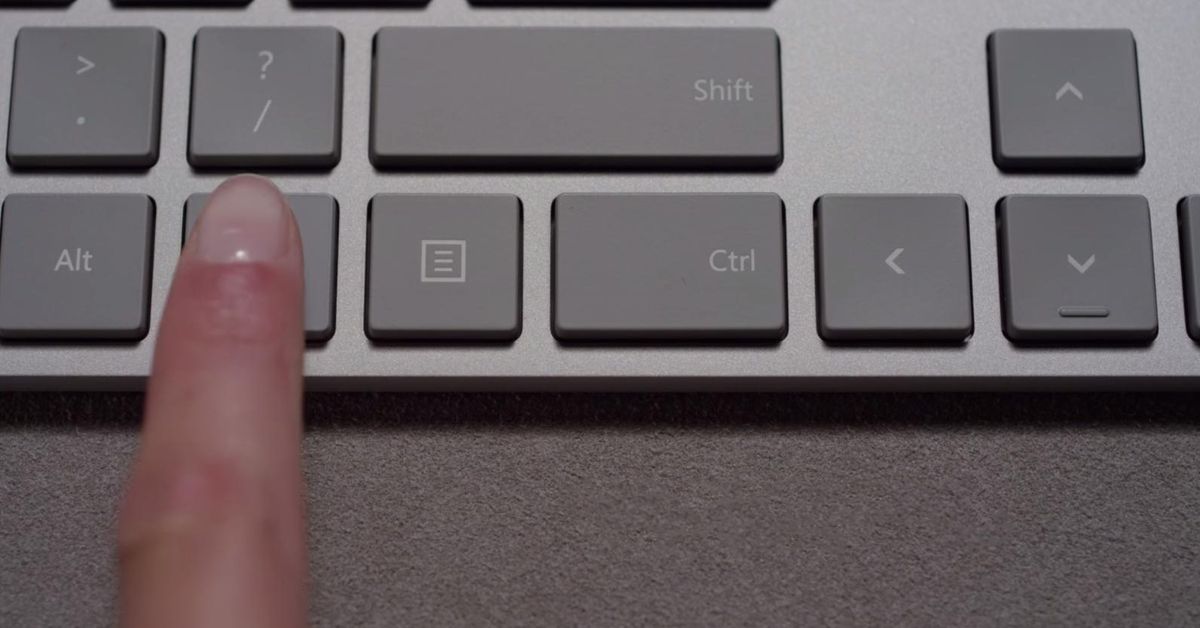- cross-posted to:
- technology@lemmy.ml
- cross-posted to:
- technology@lemmy.ml
This is why I use Linux, the fingerprint device wouldn’t be supported so this wouldn’t be an issue /s
Mmm yes security by non-functionality. A pillar of the modern cybersecurity framework.
Can’t hack a brick 🤷
But you can use a brick to hack windows.
Something something Soviet Russia…
When you could have said crack, but instead said hack.
But you can use a brick to hack windows
yes indeed, the good ol’ broken windows fallacy!
And this is why I am typing this on a 1921 Royal No. 10 typewriter.
Found Tom Hanks’s Lemmy account.
Works for my webcam. Tbh I’d like someone to hack it, would mean they would’ve written drivers for it
It is called zero trust, killing functionalities is zscaler core business
Nah I use fprint on my arch laptop so there is fingerprint login technology. Hopefully that doesn’t have security vulnerabilities.
The one on my Thinkpad works just fine :)
I got a T80s and the sensor doesn’t work. It’s an 8th gen Intel machine, that’s like four or five generations behind.
I’ve got a T440p and I just set it up through the menu in the KDE settings, it worked right out of the box.
Mine’s not in libfprint, libfprint-tod, or libfprint-goodix. Running GNOME because I heard fprintd was easier to implement instead of KDE, which is usually my pref DE.
That’s funny, on my XPS Windows crashed when I tried adding a fingerprint. Works flawlessly under Arch.
Today I was fucking around with this shit. I can’t even update my distro, otherwise ecryptfs will go adios, and fingerprinting will be broken.
The fun thing about Linux is your realize physical control is ownership. You can just throw a Bootable Linux image with some utilities and remove the password from a Windows account in a second. If you really need to keep something safe, it has to be encrypted.
wouldn’t be supported so this wouldn’t be an issue
I did not expect that 😅
One of the major reasons I gave up on trying to run Linux on my laptop was lack of fingerprint reader support.
That would be a plus for me, actually. I never liked fingerprint authentication.
So YES, from someone who was asked to do fingerprint authentication in a sensitive environment (and had to refuse, even to the salespeople pested me)
How is not having support for something a plus for you? I swear to god, some Linux users are so stuck up.
Where to start…
My dumb TV doesn’t support smart features. A plus.
My coffee maker doesn’t support wifi. A plus.
My games don’t support in-app purchases. A plus.
My windows 10 laptop (did you read that?! Whaaat, I’m not a Linux user???!!!) doesn’t support Windows 11. Major plus.
My MacBook’s OS version (no way!!!) doesn’t support unnecessary FaceTime features. A plus.
fingerprint login is not secure. period. Being stuck in using a password login is a plus
I have a Microsoft fingerprint reader that works fine on Linux lol
It stopped working when I uninstalled Edge, and so did the face recognition. So it depends on WebView or some shit. Pretty sure it’s Microsoft’s way of getting around the new EU regulations and hastily integrating the browser into everything, regardless of it making sense or improving security. like they did with 98 after the browser anti-competitiveness lawsuit.
Wtf. It shouldn’t even need those permissions. All it needs to do if scan if the fingerprint it stores matches you.
It uses web view for web authentication for registering your Hello PIN to your Microsoft account. So it’s by design on Microsoft’s end. You can then use the Windows Hello credential as a passkey but if you don’t want that, you’d need another solution for biometric auth.
Still, that does not explain the Edge dependency. Lots of programs can communicate with their respective servers without browser technology.
Oh sweet summer child. No. That would have been the intelligent approach. It could have been fast and secure but it wouldn’t have had all that delicious telemetry nor taken another step towards charging you rent just to use your computer.
They locked it behind two online services. Welcome to the new Microsoft. If it doesn’t include charging you rent or using you & your private information to train a large ai model. They don’t care.
hastily integrating the browser into everything, regardless of it making sense
So software development in general in the last couple of years?
Yes. JavaScript is famously the best programming language ever, so why not? /s
Reading the article it doesn’t sound like it’s Microsoft’s issue but the vendor’s implementation and lack of using the secure communication protocol.
“vendors implementation” rings immediate alarm bells…
it sounds like microsoft’s own laptops dont implement the spec properly!
Microsoft doesn’t make fingerprint readers.
Yea, but they sourced the parts from a vendor, and still didn’t make sure the vendor was properly following the spec.
Just goes to show how complicated it can be!
Sounds like Microsoft doesn’t make anything
Stop using biometrics for authentication!!!
Edit: lots of opinions below. Biometrics are a username, a thing you are. Finger printed can be taken from your laptop with a little powder and masking tape.
Use an authentacator app or security key kids!!
Better put would be stop using biometrics for single factor authentication. A token can be stolen, or a passcode/push notification can be phished/bypassed as easy as biometrics can.
Biometrics are two factor, because you need the fingerprint and the device they unlock.
You can’t use the device without the fingerprint and you can’t take someone’s fingerprint then use them from a different device.
You are not wrong, but you we should understand what class of attacks we are protecting against. Will biometrics stop your maid from using your device? Probably less. Will it stop the FBI? Not so sure.
Now, you may say, an FBI raid is not what you worry about on a daily basis. Agree.
If you are trying to keep the photos on your device safe from snooping, your good. Attacker needs the device and your fingerprint.
When we talk online accounts, I’d count device+fingerprint as one factor. Sure, the maid from the example above can’t login into your gmail without your fingerprint, but most attacks are online. Your device sends a token to gmail, a cookie, a String; that’s like a password. One factor.
Technically, it’s slightly better than a password, because this token can be short-lived (although often it’s not), could be cryptographic signature to be used exactly once (although…), you cannot brute-force guess the token… But IF the token leaks, the attacker has full access (or enough to cause damage).
That’s why I would suggest an independent second factor, such as password. Yes, a password. Not for your daily routine (biometrics+device is much better), but maybe for high-risk operations.
You’re right. By most definitions of MFA biometrics would pass. A biometric is something you are, and the device is something you have. My comment is more for privacy zealous people, who are concerned that they could be compromised by governments without a “something you know” component.
In Doom I had to rip off a dudes arm to gain access to the security controls on core cooling shutdown. If you don’t want to lose an arm to stop a demon horde, you’re better off just using your girlfriend’s fingerprints
Exactly the point I’m trying to make!!
No… I get it totally. That why I know my girl’s worth my time, she’s willing to potentially give up her arm for me to still play DOOM 8 days a week
Exactly, it’s fundamentally insecure.
As with all things security, it depends entirely on your thread model and the value of what you’re trying to protect.
Biometrics can be a much more secure option than using a PIN or password, depending in circumstances.
For example: when I’m working on my laptop on the train or in a coffee shop and I need to log into some website I’d rather use my fingerprint to unlock the passkey than type in a password in a public place where I have no idea who is observing me entering my password.
Same goes for paying with your phone, you can either enter your phone PIN in a crowded supermarket or you unlock with FaceID.
Also, for phones, for a lot of people the alternative to biometrics wouldn’t be a PIN, it would be no authentication whatsoever. Biometrics lowers the barrier to having a form of authentication at all.
for a lot of people the alternative to biometrics
Full password Android user representing here… It’s surprising how few people bother to even stop any amount of snooping on their phones. but I guess it’s only surprising in that I wished more from society in general.
Can you explain how?
Biometrics can be spoofed, or the body part stolen in extreme cases.
Also, in the US at least, biometrics aren’t protected by the same rights that allow you to not incriminate yourself. IIRC they’re considered a thing you have, which you can be compelled to surrender or use to unlock a device, vs something you know (like a password or pattern) which you can withhold if it would be incriminating. Check with a lawyer on this one, I haven’t paid attention to the case law here for a bit.
If someone is stealing my body parts, what they access on my devices is the least of my worries!
They don’t have to be stolen. Imagine some clever thief drugging your drink, then when you’re incapacitated they take your phone and press your finger to it or hold it up to your face to unlock it, then transfer all your money out of Venmo or whatever money transfer app you have on your phone.
The comment I replied to said stolen, which is what I was getting at.
There’s also nothing to stop someone watching over your shoulder to see your PIN for your phone/laptop. Nothing is infallible.
God, the shit people dream up to worry themselves about. Nobody is drugging you to unlock your phone.
Really? Would be up there for me. Sucks to miss a finger or eyeball, but if they’ve also drained my bank account and my credit card - I’m going to be even more pissed for sure.
Ask OPM how they plan on getting my fingerprints back.
How are biometrics fundamentally insecure?
If it is low detail enough to consistently ‘work’, it isn’t complex enough to be better than something like a chip and pin approach.
They are repeatedly bypassed with easy hacks like silly putty and photographs. People’s biometrics are not unchanging. Burned fingers, swollen eyes, and sore throats are things that can change enough to make biosecurity unreliable. That is before cold and heat and how they effect biological things!
That is all before you take into account the fact that some people don’t have whatever is being used. Have fun using eye based biosecurity on someone with cataracts or is missing their eyes entirely due to injury or just being born without them fully developed. Or they have a physical issue that makes it hard for them to interact with the bio reader. Stephen Hawking needing to lean towards a mounted eye scanner would be impossible for example.
So either you have mediocre security that allows for a lot of false positives to get through or you end up having to add a bypass system for when it fails, and now you have two ways that security can be defeated! A non-biological solution with two factor authentication of an item and a PIN or other knowledge piece is far more secure than biosecurity can ever be.
So already insecure, but in addition to that anyone with physical access to the person can force them to do the biosecurity. Police are able to force someone to put their finger on their phone, or look at the screen for a face unlock. Maybe they aren’t legally able to, but it is a good example of not being secure.
I couldn’t have said it better.
Not to mention that a company could easily harvest this information, just look at FTC for example.
Well I could have, but simply chose not to.
Me too!
They aren’t 100% reliable and it has its’ challenges based on its implementation but I wouldn’t consider it fundamentally insecure. It’s as secure as a NFC token, TOTP, or a push notification as a form of authentication. It’s like birth control, no method is 100% safe and effective, but plain username and password auth is like pulling out, anything is better than that.
Biometrics are perfectly fine! We probably don’t even live in the same country, I’m not going to get a hold of your fingerprints.
There seems to be a fundamental misunderstanding of what the biometrics actually do. The biometrics only unlock the device and give access to the security key. Once unlocked it’s exactly the same as using a yubikey, and far better than an authenticator app, as they use a crypto key, not a 6 digit number.
Well
The biometrics only unlock the device
Yes
and give access to the security key
This is the goal, sure, but what does this actually mean on device that’s mostly governed by software?
There’s a chip (like a yubikey) in the device that can hold cryptographic keys.
That’s good because the key cannot (easily) be extracted from the device.
That’s good as long as no one has physical access to your device.
With physical access, you hope that the device’s unlock mechanism is reasonably secure. That’s biometrics OR password/pin.
The ‘or’ is the problem. For practical reasons you don’t want exactly one method hard-wired. You have a fingerprint scanner (good enough), the secure element (good enough) and lots of hard- and software in between (tricky).
I’m not against biometrics (to unlock a device) because it’s convinient and much better than not locking the device at all. I’m also not against device trust (which you need if you want to store crypto keys sonewhere without separate hardware), but the convience of a single-device solution (laptop or phone) comes with a risk.
If an attacker can bypass the unlock method or trick you into unlocking or compromise the device, your secrets are at risk. Having the key stored in the secure enclave (and not in a regular file on the hard disk) prevents copying the key material, but it does not prevent using the key when the attacker has some control over the (unlocked) device.
A yubikey is more secure because it’s tiny and you can carry it on your keychain. The same chip inside your laptop is more likely to fall into the hands of an attacker.
If someone has physical access to you and your device, they are getting in
Using biometrics to protect your online accounts is far more secure than a password
Who is surprised? Are you surprised?
Removed by mod
Pikachu is always surprised. And he doesn’t even speak or read English. So I was discounting him.
im all for the something you have + something you are , pb&j relationship, but i dont think lathering biometrics on top is a good idea,far too many spy movies have shown Tom Cruise doing the MOST for pictures of eyeballs and fingerprints for me to ever trust this type of auth
The main issue with biometrics is that you can’t change them. If your fingerprints or retina are compromised you’re fucked.
Unless I meet you in person, I’m not going to get your biometrics. The point of these is to protect your accounts from the global Internet.
And yet, as a service member that was part of the 2013 OPM data breech, my finger prints (and an estimated 5.5 million other peoples) were part of the dataset that was stolen.
So… What’s your point about “Global Internet”? If my data was stolen, and sent to the “Global Internet”(The fuck does this even mean?)… There’s no functional difference to an exposed password.
It doesn’t need to be physical breach. If it’s stored somewhere it can (and might) be accessed by someone else and reconstructed.
And still useless unless they also steal your phone. You are still safe from the hackers on the other side of the planet
This is the best summary I could come up with:
Microsoft’s Offensive Research and Security Engineering (MORSE) asked Blackwing Intelligence to evaluate the security of fingerprint sensors, and the researchers provided their findings in a presentation at Microsoft’s BlueHat conference in October.
The team identified popular fingerprint sensors from Goodix, Synaptics, and ELAN as targets for their research, with a newly-published blog post detailing the in-depth process of building a USB device that can perform a man-in-the-middle (MitM) attack.
Blackwing Intelligence researchers reverse engineered both software and hardware, and discovered cryptographic implementation flaws in a custom TLS on the Synaptics sensor.
The complicated process to bypass Windows Hello also involved decoding and reimplementing proprietary protocols.
The researchers found that Microsoft’s SDCP protection wasn’t enabled on two of the three devices they targeted.
Blackwing Intelligence now recommends that OEMs make sure SDCP is enabled and ensure the fingerprint sensor implementation is audited by a qualified expert.
The original article contains 474 words, the summary contains 145 words. Saved 69%. I’m a bot and I’m open source!
The Surface Pro X has a fingerprint reader? Is it on the keyboard or something? Mine sure doesn’t have one.
Surprise. Or not.
Of course it has. Microsoft Windows.
deleted by creator
























